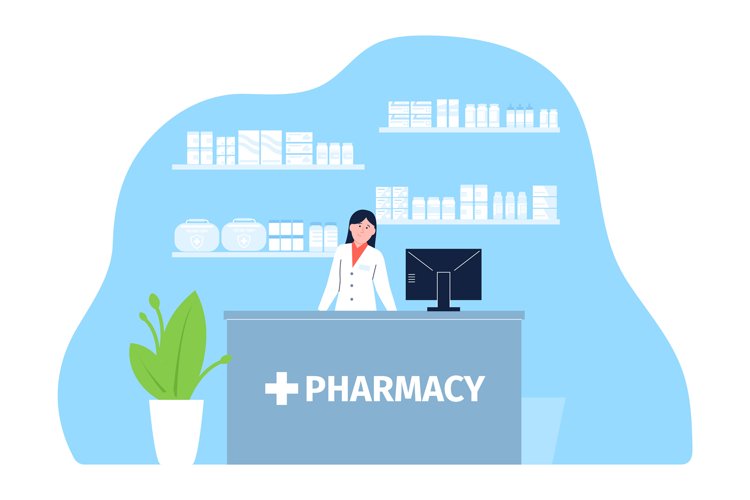Pharmacist
Note: CSUSB does NOT have a pharmacy program. Be sure to utilize these pages as how-to guides, checking out the list of institutions where you can pursue these pathways (at the bottom of each section).

A pharmacist is a healthcare professional who is specifically trained to store, handle, prepare, and dispense various medications. They are essential in educating patients about using or administering their medications. Pharmacy combines science, health care, direct patient contact, technology, ethics, and business. A pharmacist is a highly skilled and trusted medication expert. They know and understand everything there is to know about drugs. Pharmacists undergo extensive education in order to understand the role that drugs play in different situations. They are familiar with the biochemical makeup of drugs and how that impacts their use, side effects, interactions, and effectiveness implications. Their role revolves around dispensing prescriptions to patients, conducting health screenings, giving immunizations, and advising on the safe use of medicine.
Pharmacy Prerequisites
NOTE: CSUSB does not offer a Pharmacy educational program. Information is for pre-health advising purposes. Specific prerequisite courses can vary by school--always double-check the website of each pharmacy school you are applying to for specific requirements. Please review the CSUSB Catalog as a guide to completing prerequisites at CSUSB.
| Prerequisites | CSUSB Courses |
Biology: One year or two semesters of General Biology with lab.
One semester of Microbiology with lab. A year of Anatomy & Physiology must include a lab. Courses can be separated into one semester of Anatomy, one semester of Physiology, or taken as a year-long series.
|
BIOL 2010 and BIOL 2020 (these courses have the lab section built-in at CSUSB) BIOL 2200 OR BIOL 3200 BIOL 2230 and BIO 2240 OR BIOL 4630 and BIO 4640 |
Chemistry: One year or two semesters of General Chemistry with lab.
One year or two semesters of Organic Chemistry with lab. One semester of Biochemistry, lab is recommended but not required (This course may be required at some institutions). |
CHEM 2100 & 2100L and CHEM 2200 & 2200L CHEM 2400 & 2400L and CHEM 2500 & 2500L OR CHEM 3400 & CHEM 3500 CHEM 4100 & 4100L |
Calculus: One semester of Calculus. Students must place/test into MATH 2210 (Calculus I) OR take MATH 1401 (Pre-calculus) before MATH 2210. |
MATH 1401 and MATH 2210 |
Physics: One year or two semesters of General Physics with lab.
|
PHYS 2000 & PHYS 2000L and PHYS 2010 & PHYS 2010L OR PHYS 2500 & 2500L and PHYS 2510 & 2510L |
Introductory Psychology: (PSYC 1100) This course may be required at some institutions.
Sociology/Anthropology: (SOC 1000 or ANTH 1002) An Introduction to Sociology or Cultural Anthropology course.
Statistics: (MATH 1201, or MATH 1202 and MATH 1203) The course must contain descriptive and inferential statistics topics.
Pharmacy Schools
Articulation Agreements
- Western University: College of Pharmacy Early Admission PharmD Program
- Western University of Health Sciences PharmD Prerequisites
- Loma Linda University School of Pharmacy Prerequisites
PharmCAS Pharmacy College Application Service
The Pharmacy College Application Service (PharmCAS) is a centralized application service to apply to multiple Doctor of Pharmacy (Pharm.D.) degree programs offered by schools and colleges of pharmacy. PharmCAS is designed for first-year professional Pharm.D programs. High school students and current student pharmacists who wish to transfer to another pharmacy degree program should contact institutions directly for instructions.
- Pharmacy schools utilize a centralized application system called PharmCAS
- PharmCAS Application Instructions
- PharmCAS Workshop: Your Passion on Paper (Video)
- You will need a personal essay (4,500 characters), letters of recommendation, achievements - PharmCAS Supporting Information
- What is the PCAT? Is it needed?
- The Pharmacy College Admission Test (PCAT®) is a specialized test that helps identify qualified applicants to pharmacy colleges. It measures general academic ability and scientific knowledge necessary for the commencement of pharmaceutical education. The PCAT is constructed specifically for colleges of pharmacy. The PCAT was retired on January 10, 2024. No PCAT testing dates will be offered during the 2024–2025 admissions cycle or beyond. All test takers may continue to request Official Transcripts and Personal Score Reports through the Pearson website until December 2024.